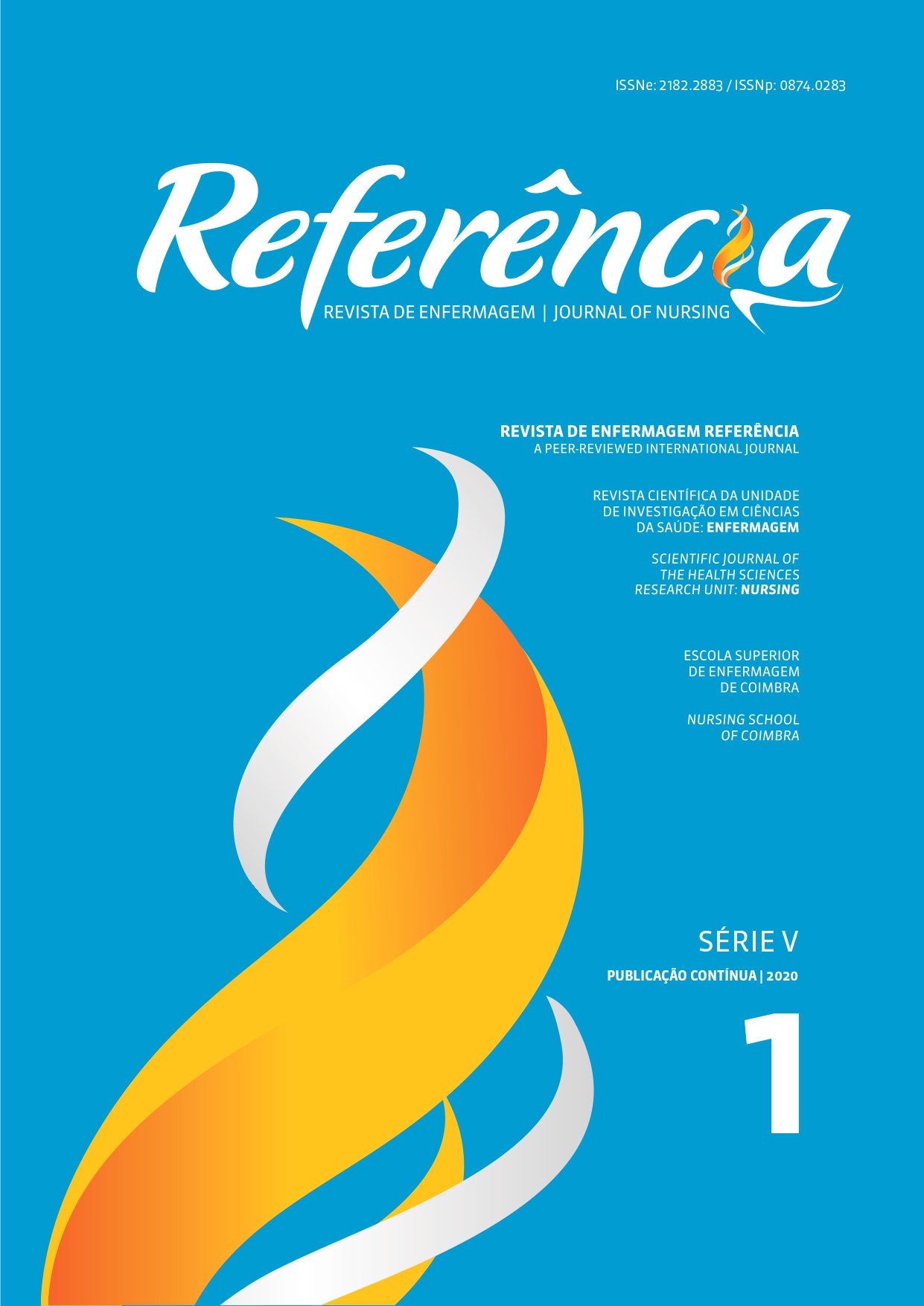Prenatal consultation in primary health care: weaknesses and strengths of Brazilian nurses’ performance
DOI:
https://doi.org/10.12707/RIV19050Keywords:
primary health care, prenatal care, nursingAbstract
Background: To ensure prenatal care quality and reduce maternal and neonatal morbimortality, nurses working in primary health care settings need to carry out consultations aimed at identifying and preventing unfavorable perinatal outcomes.
Objective: To know the weaknesses and strengths of nurses’ performance in prenatal consultations.
Methodology: A qualitative, descriptive study was conducted in the first half of 2018. The sample was composed of 11 female nurses bound to family health strategy units of a municipality in southern Brazil. Structured interviews were conducted and subject to thematic content analysis.
Results: The weaknesses identified included the delay in delivering the prenatal screening tests requested, the deficit of professionals to make up the multidisciplinary teams, and the difficulty of pregnant women to understand the importance of prenatal care. As for strengths, the variety of clinical interventions, the bond between the professional and the mother, and the use of local protocols were considered.
Conclusion: This study allowed knowing relevant aspects that can influence the quality of primary health care provided by nurses.
Downloads
References
Aires, C. M., Ferreira, I. M., Santos, A. T., & Sousa, M. R. (2016). Empowerment na gravidez: Estudo de adaptação da Empowerment Scale for Pregnant Women para o contexto português. Revista de Enfermagem Referência, 9(10), 49-57. doi:10.12707/RIV16033
Akter, M. K., Yimyam, S., Chareonsanti, J., & Tiansawad, S. (2018). The challenges of prenatal care for Bangladeshi women: A qualitative study. International Nursing Review, 65(4), 534-541. doi:10.1111/inr.12466
Alnuaimi, K., Oweis, A., & Habtoosh, H. (2019). Exploring woman- nurse interaction in a Jordanian antenatal clinic: A qualitative study. Midwifery, 72, 1-6. doi:10.1016/j.midw.2019.01.008
Bortoli, C. F., Bisognin, P., Wilhelm, L. A., Prates, L. A., Sehnem, G. D., & Ressel, L. B. (2017). Factors that enable the performance of nurses in prenatal. Revista de Pesquisa: Cuidado é Fundamental Online, 9(4), 978-983. doi:10.9789/2175-5361.2017.v9i4.978-983
Dodou, H. D., Rodrigues, D. P., & Oriá, M. O. (2017). The care of women in the context of maternity: Challenges and ways to humanize. Revista de Pesquisa: Cuidado é Fundamental Online, 9(1), 222-230. doi:10.9789/2175-5361.2017.v9i1.222-230
Gomes, C. B., Dias, R. S., Silva, W. G., Pacheco, M. A., Sousa, F. G., & Loyola, C. M. (2019). Prenatal nursing consultation: Narratives of pregnant women and nurses. Texto & Contexto Enfermagem, 28, e20170544. doi:10.1590/1980-265x-tce-2017-0544
Ickovics, J. R., Lewis, J. B., Cunningham, S. D., Thomas, J., & Magriples, U. (2019). Transforming prenatal care: multidisciplinary team science improves a broad range of maternal–child outcomes. The American Psychologist, 74(3), 343-355. doi:10.1037/amp0000435
Minayo, M. C. (2014). O desafio do conhecimento: Pesquisa qualitativa em saúde (14ª ed.). São Paulo, Brasil: Hucitec. Ministério da Saúde. (2016). Protocolos da atenção básica: Saúde dasmulheres. Brasília, Brasil: Autor. Recuperado de http://bvsms.saude.gov.br/bvs/publicacoes/protocolos_atencao_basica_saude_mulheres.pdf
Ministério da Saúde. (2013). Atenção ao pré-natal de baixo risco. Brasília, Brasil: Autor. Recuperado de http://189.28.128.100/dab/docs/portaldab/publicacoes/caderno_32.pdf
Nunes, J. T., Gomes, K. R., Rodrigues, M. T., & Mascarenhas, M. D. (2016). Qualidade da assistência pré-natal no Brasil: Revisão de artigos publicados de 2005 a 2015. Cadernos Saúde Coletiva, 24(2), 252-261. doi:10.1590/1414-462X201600020171
Oliveira, D. C., & Mandu, E. N. (2015). Women with high-risk pregnancy: Experiences and perceptions of needs and care. Escola Anna Nery Revista de Enfermagem, 19(1), 93-101. doi:10.5935/1414-8145.20150013
Portaria nº 2.436, de 21 de setembro de 2017. Diário Oficial da União nº 183 – Secção 1. Ministério da Saúde. Brasília, Brasil. Recuperado de http://www.in.gov.br/materia/-/asset_publisher/Kujrw0TZC2Mb/content/id/19308123/do1-2017-09-22-portaria-n-2-436-de-21-de-setembro-de-2017-19308031
Quental, L. L., Nascimento, L. C., Leal, L. C., Davim, R. M., & Cunha, I. C. (2017). Práticas educativas com gestantes na atenção primária à saúde. Revista de Enfermagem UFPE on line, 11(sup. 12), 5370-5381. doi:10.5205/1981-8963-v11i12a23138p5370-5381-2017
Saavedra, J. S., & Cesar, J. A. (2015). Uso de diferentes critérios para avaliação da inadequação do pré-natal: Um estudo de base populacional no extremo Sul do Brasil. Cadernos de Saúde Pública, 31(5), 1003-1004. doi:10.1590/0201-311X00085014
Seven, M., Akyüz, A., Eroglu, K., Daack-Hirsch, S., & Skirton, H. (2017). Women’s knowledge and use of prenatal screening tests. Journal of clinical nursing, 26(13-14), 1869-1877. doi:10.1111/jocn.13494
Strefling, I. S., Borba, C. B., Soares, M. C., Demori, C. C., Vaz, C. H., & Santos, C. P. (2017). Perceptions of puerperas on nursing care in joint accommodation. Revista de Pesquisa: Cuidado é Fundamental Online, 9(2), 333-339. doi:10.9789/2175-5361.2017.v9i2.333-339
Van der Sand, I. C., Ressel, L. B., Monticelli, M., & Schirmer, J. (2016). Self-attention in pregnancy for women living in rural area: A ethnographic study. Texto & Contexto Enfermagem, 25(4), e2510015. doi:10.1590/0104-07072016002510015
Vargas, G. S., Alves, V. H., Rodrigues, D. P., Branco, M. B., Souza, R. M., & Guerra, J. V. (2016). Atuação dos profissionais de saúde da estratégia saúde da família: Promoção da prática do aleitamento materno. Revista Baiana de Enfermagem, 30(2), 1-9. doi:10.18471/rbe.v30i2.14848
Viellas, E. F., Domingues, R. M., Dias, M. A., Gama, S. G., Theme Filha, M. M., Costa, J. V., & Leal, M. C. (2014). Prenatal care in Brazil. Cadernos de Saúde Pública, 30(sup.1), S1-S15. doi:10.1590/0102-311X00126013






















